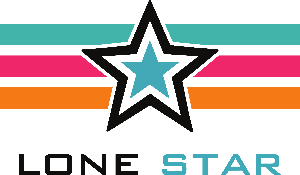Communication Guidelines
- Athletic achievement requires commitment from all athletes, parents, coaches, and board members. For all of us to be successful, effective communication must occur.
- The coaches and administration believe strongly in being accessible to parents and supportive of the coaching staff.
- We are continually attempting to improve communication with the swimmers and parents. For our program to be truly successful, it is necessary that everyone understands the focus and direction of the program.
- LSAC will strive to employ coaches with specialize in teaching individual and group skills. But more importantly, these people should encourage participation in all sports and instill a love for competition. They shall work hard to field the best possible teams, yet always keep the welfare of the swimmer uppermost in their minds.
- Belonging to a team is a privilege for any athlete who is capable of competing and is willing to conform to the high standards and ideals of athletics.
Overview
We believe that the experience of children and young athletes in all organized sports should be guided by what is best for the safe and healthy development of the young person. Young athletes who participate in organized sports activities have a unique opportunity for learning. In working with each child, it is essential that we are mindful of their physical, emotional, and developmental needs. We must also be particularly diligent in recognizing the unique vulnerabilities that are an inherent part of childhood. It is the responsibility of all adults to not only recognize these vulnerabilities, but to develop the knowledge and skills needed to create and maintain a safe and child- centered sports environment.
- Parents are encouraged to appropriately support their children’s swimming experience.
- Parents should never interfere with the coach during practice.
- All swimming practices should be open to observation by parents.
- Two-deep Leadership: One coach member and at least one other adult who is not in the water should be present at all practices and other sanctioned club activities whenever at least one athlete is present.
- Open and Observable Environment: An open and observable environment should be maintained for all interactions between adults and athletes. Private, or one-on- one situations, should be avoided unless they are open and observable. Common sense should be used to move a meeting to an open and observable location if the meeting inadvertently begins in private.
- Coaches and other non-athlete adult members should avoid horseplay and roughhousing with athletes.
- When a coach touches an athlete as part of instruction, the coach should do so in direct view of others and inform the athlete of what he/she is doing prior to the initial contact. Touching athletes should be minimized outside the boundaries of what is considered normal instruction. Appropriate interaction would include high fives, fist bumps, side-to-side hugs and handshakes.
- Parents must understand that no two kids are the same. All kids respond, react and develop differently. Never compare your kid to another under any circumstance. Instead let the coach do their job and give your kid their independence. This will allow them to develop self-management skills and allow them to prepare for life.- When and where practices and competitions are held.
- If you have questions about coaching philosophy, expectations he/she has for all swimmers on the squad as well as your individual child or what is required to be a part of the team, i.e., fees, special equipment, off season conditioning, etc. then please make an appointment with the coach of your child.
- Never approach the coach after a meet or practice unless the coach requests this discussion. Please do not confront a coach before, during, or following a contest or practice. These may be busy and emotional times for both the parent and the coach, and this period does not promote objective analysis of the situation.
A. It is reasonable to expect your child’s coach to inform you:
- When and where practices and competitions are held.
- About his/her coaching philosophy.
- About the expectations he/she has for all swimmers on the squad as well as your individual child.
- What is required to be a part of the team, i.e., fees, special equipment, off season conditioning, etc...
- If your child is injured during participation in a practice or competition.
- Whenever any disciplinary action results in your son/daughter being denied participation in a practice or contest.
B. Typical concerns of parents that are appropriate to discuss with a coach are:
1. Any unhealthy mental or physical strain you detect in your child at home, especially when it affects his/her performance.
2. How you can contribute to your child’s skill improvement and development.
3. Any dramatic changes you detect in your child’s behavior.
Our Expectations
Coaches are professionals. They make judgments based on what they believe to be best for all swimmers involved. There are situations that may require a conference between the coach and the parent. These are encouraged. It is important that both parties involved have a clear understanding of the other’s position.
Coaches often need parents to tell them:
1. Any specific health concerns about their son/daughter expressed directly and informally to the head coach at a mutually convenient time.
2. Notification of any schedule conflicts well in advance.
3. Your commitment to the program, and how you plan to make a contribution to the program’s success. For example, one way is to be sure your athlete is at practice each day on time and to make sure that your child gets enough rest and nutrition at home.
4. Strategies that have worked for you in encouraging your son’s/daughter’s success.
The procedure to follow to discuss a concern with a coach:
1. Make an appointment with the coach of your child. Never approach the coach after a meet or practice unless the coach requests this discussion.
2. Please do not confront a coach before, during, or following a contest or practice. These may be busy and emotional times for both the parent and the coach, and this period does not promote objective analysis of the situation.
What should you do if the meeting with the coach does not result in a resolution to the problem?
1. Call and set up an appointment with the Board to discuss the situation.
2. At this meeting, an appropriate next step can be determined.
OBJECTIVES OF LSAC To contribute to the total education process by:
A. Developing physical fitness and proper health habits.
B. Emphasizing and encouraging self-discipline
C. Developing pride and confidence.
D. Encouraging spirit of good sportsmanship.
E. Emphasizing growth in the areas of physical, mental, social, psychological, and moral development.



